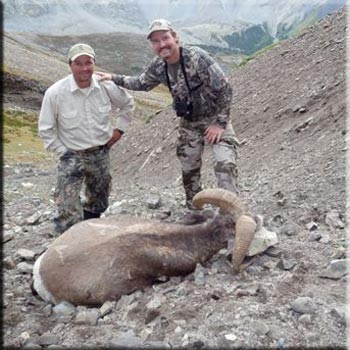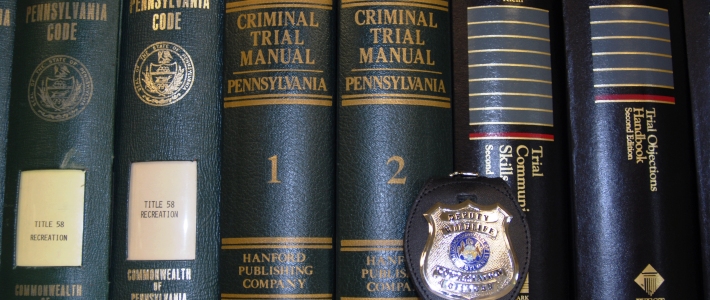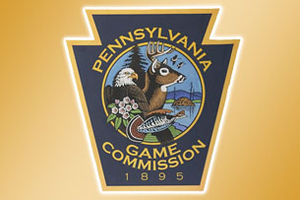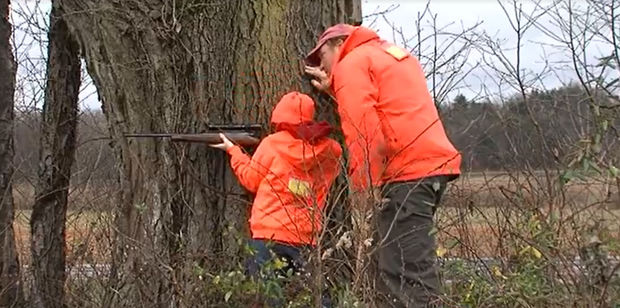The Game and Wildlife Code (Title 34) dictates how a Pennsylvania law abiding gun owner (Penn LAGO) can hunt. In Title 34, we find numerous restrictions regarding hunting. Furthermore, Title 34 vests authority in the Game Commission to make determinations and impose additional restrictions. For instance, Title 34 states that “[t]he commission shall promulgate regulations relating to seasons and bag limits for hunting or furtaking, the possession of certain species or parts thereof, the number and types of devices and equipment allowed, the identification of devices and the use and possession of devices.” 34 Pa.C.S. § 2102 (emphasis added). These are simply a few of the means and methods regulated by the Game Commission under Title 34. In short, they set the rules as to who may hunt, how they may hunt, where they may hunt, when they may hunt, and what they may hunt. [For Seasons and Bag Limits, click here].
On Tuesday (1/27/2015), the Game Commission gave preliminary approval to add a new restriction. Pennsylvania has fostered hunting among its youth through its Mentored Youth Hunting Program. Through this program, the Game Commission has provided Mentored Youth Hunting Permits which are valid for squirrel, groundhog, antlered and antlerless deer, fall and spring turkey and coyote. While hunting, a Mentored Youth must be accompanied by a “licensed mentor who is 21 years of age or older.” [For the Game Commission’s explanation of the program and rules, click here].
At present, while Mentored Youths must be under the age of twelve, the program sets no minimum age. However, under the new measure, children under the age of seven will not be able to take antlered deer or spring gobbler with their Mentored Youth Hunting Permit. Children under seven may still take the turkey or deer, but the harvest must count toward a licensed mentor’s permit. In essence, the new measure requires great sacrifice on the part of mentors.
Because this measure was only granted preliminary approval, it is not yet the law. The final vote will take place at the Game Commission’s board meeting in April.
 If the vote passes, young LAGOs and their licensed mentors had better be aware of the new restrictions. Recently, Baseball Hall of Famer Wade Boggs was in the news for a mishap regarding hunting regulations. Boggs was on a guided tour in Alaska hunting Dall sheep, when he expressed interest in taking bull caribou as well. The guide assured Boggs that a tag need not be purchased until after the bull caribou was taken. This was false, and taking the bull caribou without a pre-purchased tag is illegal. The guide backdated the tag even though Boggs’ personal check for the tag reflected the proper date. Accordingly, the guide was charged and pleaded guilty.
If the vote passes, young LAGOs and their licensed mentors had better be aware of the new restrictions. Recently, Baseball Hall of Famer Wade Boggs was in the news for a mishap regarding hunting regulations. Boggs was on a guided tour in Alaska hunting Dall sheep, when he expressed interest in taking bull caribou as well. The guide assured Boggs that a tag need not be purchased until after the bull caribou was taken. This was false, and taking the bull caribou without a pre-purchased tag is illegal. The guide backdated the tag even though Boggs’ personal check for the tag reflected the proper date. Accordingly, the guide was charged and pleaded guilty.
Although Boggs himself was not charged, his case is a rarity. Ignorance or mistakes regarding the law generally serve as no defense. Pennsylvania courts have affirmed the age old principle that “everyone is presumed to know that law” and “ignorance of the law is no excuse.” Com. v. McBryde, 2006 PA Super 289. That case particularly analyzed whether an out-of-state driver’s misconception of local traffic laws could serve as a defense to a violation. In line with an abundance of legal doctrine, it could not. Rather, the Court found that “[a]n out-of-state driver is not absolved from following the laws of this Commonwealth or any other state in which he or she chooses to drive.” Id. Similarly, those who choose to hunt will be presumed to know the applicable laws and regulations.
Suppose the final vote results in a change of law, and a mentor/mentee team are unaware. What kind of penalties are we looking at if they take a deer or turkey without a transferable tag?
The laws governing the unlawful taking of wildlife, in general, are set forth in 34 Pa.C.S. § 2307. Under § 2307, if carried out contrary to the laws provided in Title 34, the taking of a deer constitutes a summary offense of the second degree, and the taking of a turkey constitutes a summary offense of the fourth degree. As further outlined in § 925 (Jurisdiction and penalties), a summary offense of the second degree carries fines “not less than $400 nor more than $800” and may also carry a sentence of imprisonment up to one month. A summary offense of the fourth degree carries fines “not less than $150 nor more than $300.”

Retrieved from http://www.portal.state.pa.us/portal/server.pt?open=512&objID=9115&mode=2 on 1/27/2015.
These penalties are fairly serious for what could be an honest mistake. Therefore, it is absolutely integral to know the law. Referring back to the vehicle comparison, you don’t have to drive, but if you do, the government expects you to know the law. Likewise, you don’t have to hunt, but if you choose to do so, the Game Commission expects you to know the law.
Moreover, according to the Pennsylvania Code, “[a] mentor is responsible and accountable for all actions of the mentored youth occurring while engaged in hunting or related activities. A mentor who causes or allows a mentored youth to engage in an unlawful act shall be punishable as the principle offender . . . .” § 147.806. Sticking with our previous comparisons, you will be responsible for your “student driver’s” actions. This seems somewhat reasonable. After all, the mere existence of a mentor/mentee relationship suggests that the mentee has something to learn. So youths and licensed mentors alike must be well informed of the laws, especially as they evolve.
As we await the Gaming Commission’s vote on this issue, nobody knows what the future of the Mentored Youth Hunting Program holds. However, those planning to hunt should keep a close eye on the outcome. Taking action without first educating yourself (and your young mentees) as to the ever-changing laws can pose serious penalties, as we’ve discussed. As the Mentored Youth Hunting Program was created to educated young hunters, be sure to educate your mentees as to the laws, and not merely the mechanics, of the cherished tradition.



